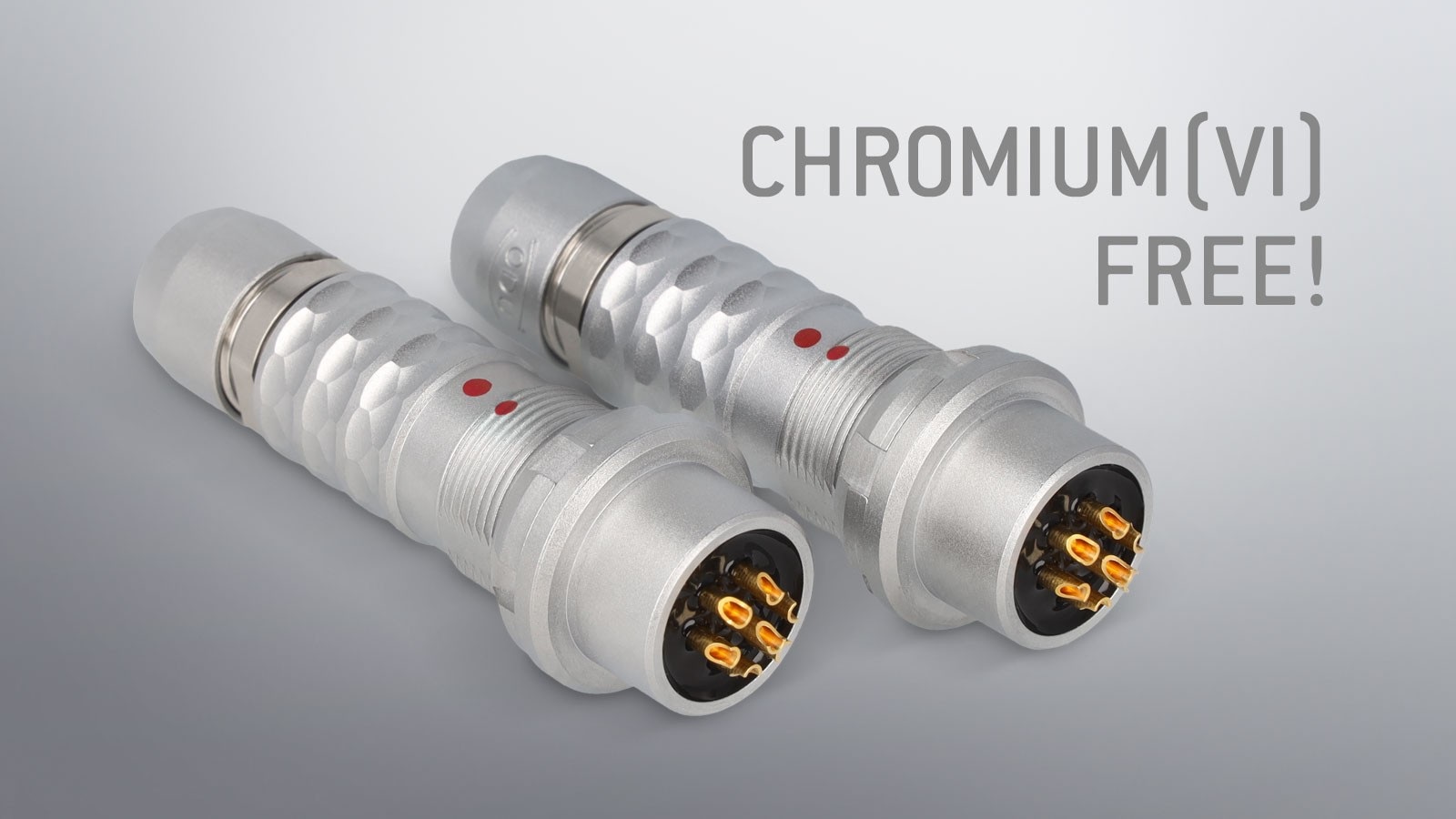
REACH directive chromium-free - Connectors
Successful transition to chromium-free alternative
REACH 1906/2006
The REACH regulation 1907/2006 was introduced in 2006 to better protect people and the environment from hazardous substances and to regulate the handling of chemicals in the European Union. Every company that uses chemical substances in production is affected by the regulation. Chromium(VI) oxide is used in a very wide range of applications and has long been regulated by the REACH regulation. This substance is used in various surface treatments.
The use of chromium(VI) compounds for functional chromium coatings with a decorative character is expected to be banned in the near future. Numerous industries are directly (e.g., electroplating) or indirectly (e.g., mechanical engineering) affected by these restrictions. As a manufacturer of connectors, ODU has addressed this issue and reports on its approach.
Interview with Mark Bingham – Head of Product Management Circular Connectors at ODU
Q: Companies must comply with the REACH regulation. In which areas does this apply to you as a manufacturer of connectors?
A: Our circular connectors receive a surface treatment that not only provides a very attractive appearance but also meets a range of mechanical and electrical requirements. This finishing process is largely responsible for the quality and durability of our products and is carried out in our own electroplating facility. Treatment with hexavalent chromium solutions (chromic acid H2CrO4) is common in many industries. Our circular metal connectors (MINI-SNAP®), which are mainly used in industrial, test and measurement, or medical applications, were also subjected to these solutions within the process of decorative surface treatment. Researchers claim that exposure to hexavalent chromium compounds can have an adverse health effect on humans. The REACH regulation requires the protection of workers in the workplace. Therefore, chromium(VI) may no longer be used in finishes in accordance with the REACH regulation since the so-called "sunset date" on September 21, 2017. Applications for exceptions are still pending. For decorative surfaces, it is expected that this approval or exemption application will expire in the near future.
Q: What special properties does chromium have that make it suitable for use in your production?
A: Our connectors can withstand a very large number of mating cycles and must be corrosion-resistant and, for the medical sector, also autoclavable or resistant to wipe disinfectants. The surface treatment must ensure and enable the electrical and mechanical properties. The mechanical lifespan can be significantly affected by the choice of surface treatment.
Q: Due to the current circumstances, you are at risk of a ban in the medium term. What are you going to do about it?
A: We investigated the issue at an early stage and found a very good alternative. We have switched to a chromium(VI)-free electrolyte. The new electrolyte selected for the chromium treatment has resulted in a surface that has proven to be at least equivalent or even better in all tests of the valid product specifications. As a replacement for the black chromium surface, we have chosen a tin-nickel finish. This surface has been tried and tested for many years with other ODU product ranges.
Q: What tests have you performed on the new matte chromium surface?
A: The tests included the number of mating cycles, electrical properties, salt spray tests and corrosion resistance, autoclavability, and visual appearance (coloring). The results were very convincing.
Q: How did you manage the migration to the new decorative surface?
A: We have expanded our capabilities with an additional turning shop and a new electroplating facility. The commissioning has already taken place and everything is operational. The migration to the new surface treatment processes in production is complete. We have stopped all production processes that previously used chromium(VI).
Q: Does the change affect customers?
A: No, our customers continue to receive our top-quality products and the warranty claims remain unaffected. We are prepared and are already chromium(VI)-free. Our entire production has already been converted. If the ban comes into effect tomorrow, our supply chain will remain intact and our customers will not notice anything.
